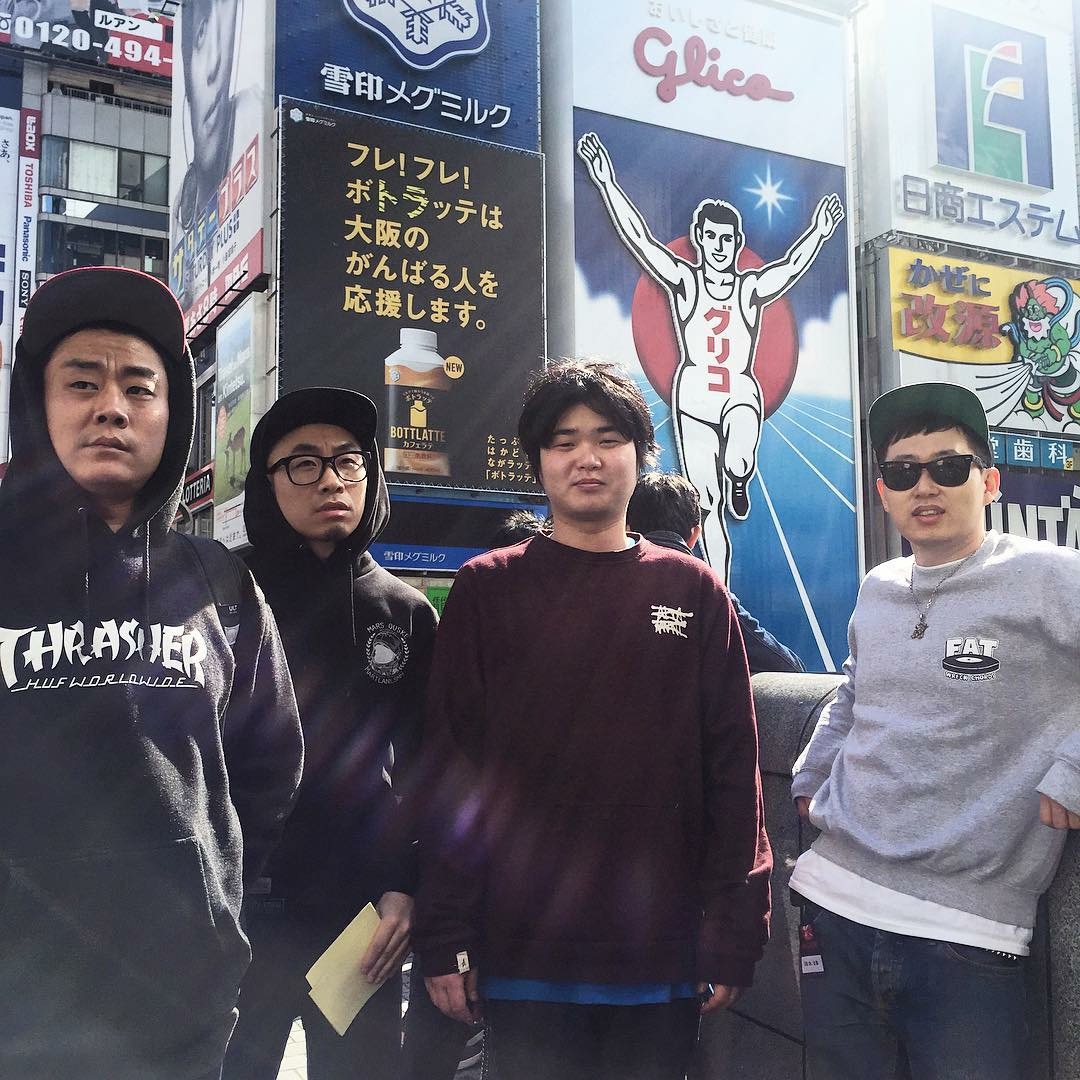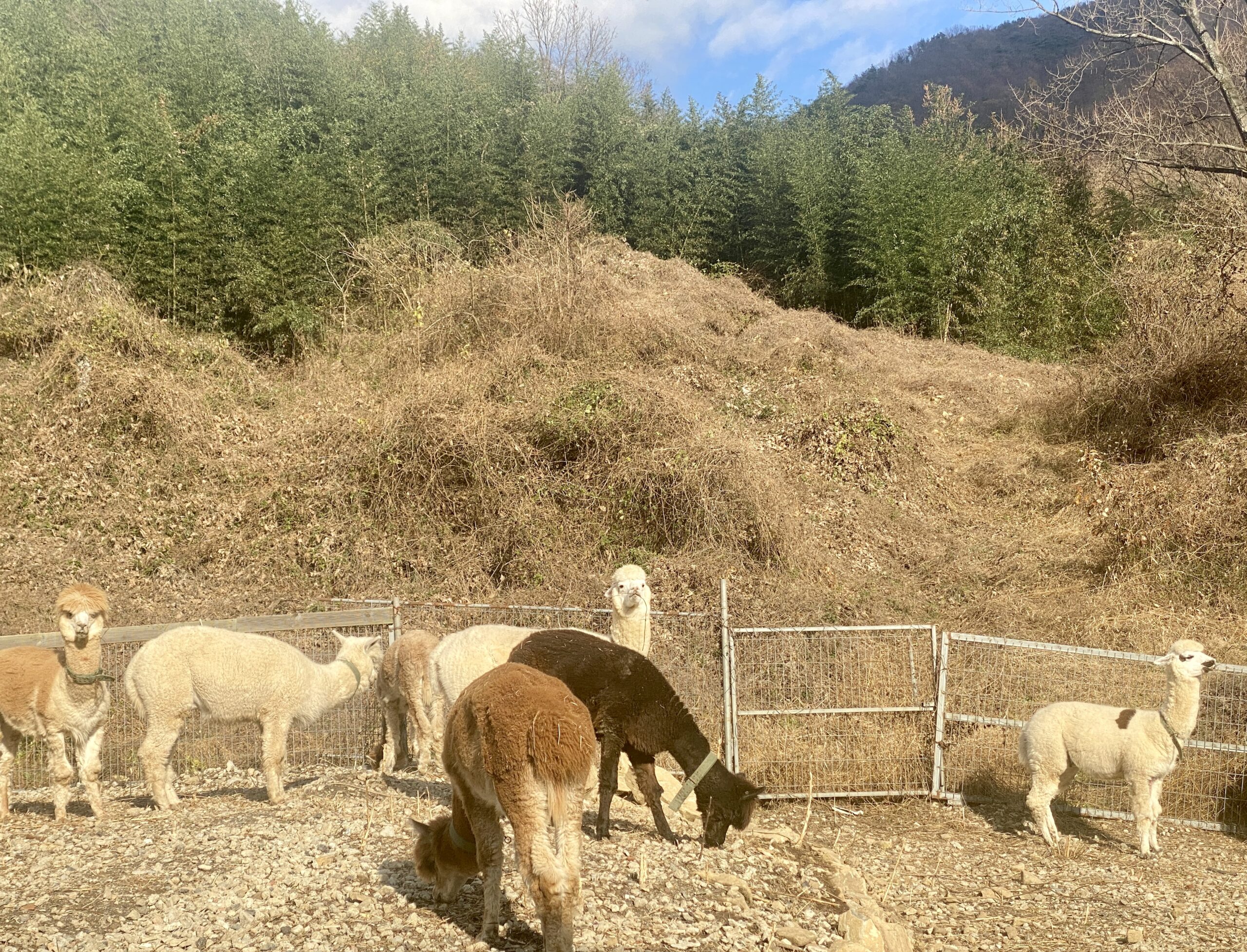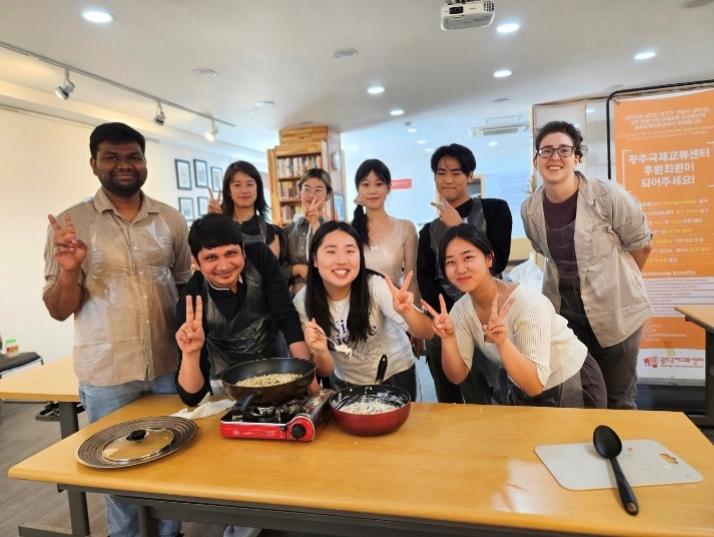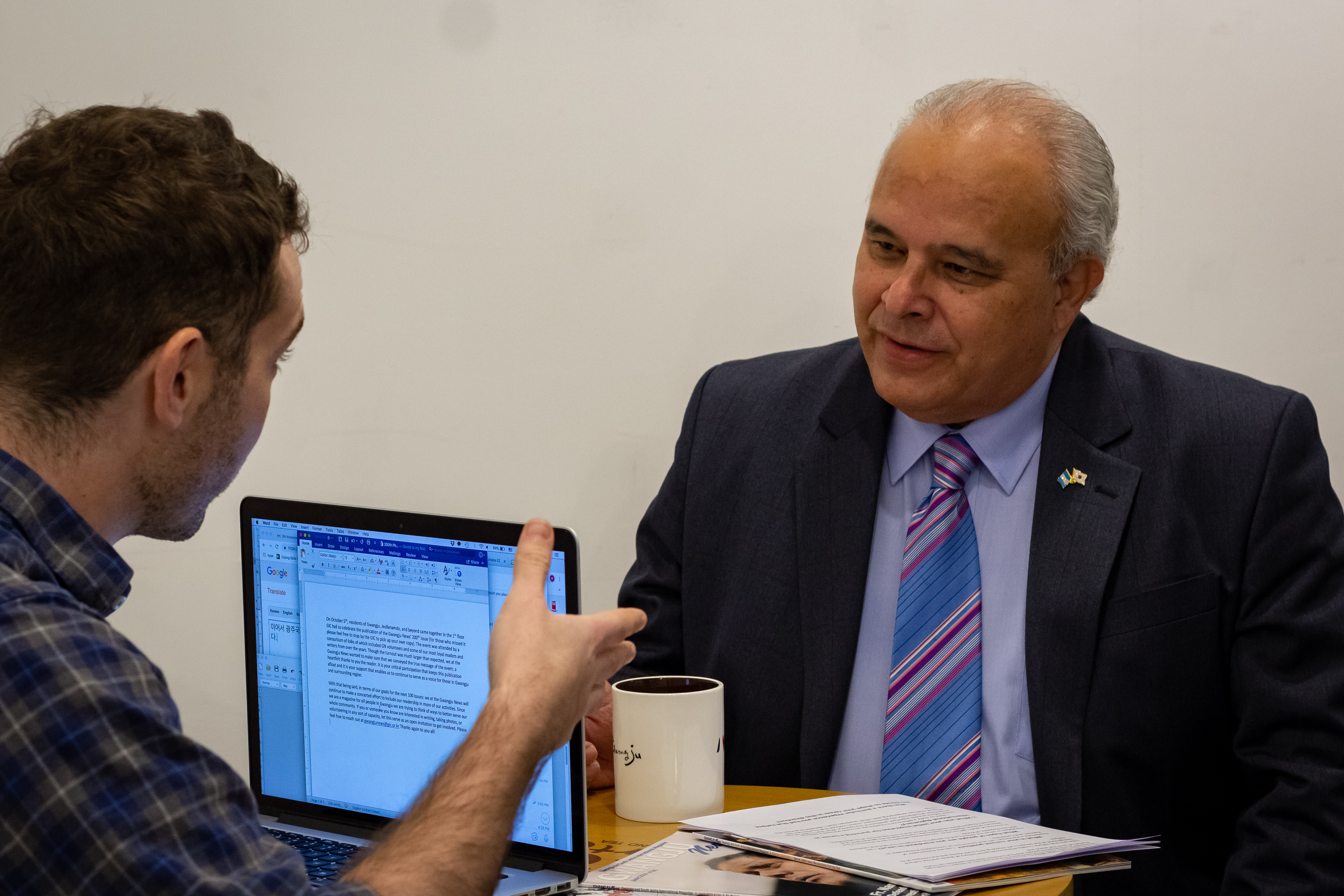Fostering Ties Across the Pacific: Interview with Guatemalan Ambassador to Korea Herbert Estuardo Meneses Coronado
Written by Wilson Melbostad
Photographed by Sarah Pittman
The nations of South Korea and Guatemala have enjoyed bilateral relations since 1962 and since then have been successful trade partners who have provided a helping hand when needed. Guatemala’s presence in Korea has increased in recent decades largely because of a quickly growing Korean diaspora population in the Central American nation, now one of the largest in all of Latin America. Upon a visit to the Gwangju International Center, the Gwangju News was able to sit down with longtime diplomat and current Guatemalan Ambassador to Korea Herbert Estuardo Meneses Coronado.
Gwangju News (GN): Greetings, Ambassador Coronado! Please tell us a little about yourself. What is your current position and what types of people are you mandated to serve?
Ambassador Coronado (Meneses Coronado): First of all, I want to say I am a free spirit and I just love meeting people. The most important thing to me is meeting family and friends. I love arts and culture, sports, and politics as well. I am a lawyer and public notary, and have a master’s in administration and a PhD in political science from Havana University. I serve as a diplomat and have been an ambassador for my country for 25 years. That is my life at this moment. In the past I was with my country’s Ministry of Culture, but I am currently the ambassador to Korea and have been for almost two years.
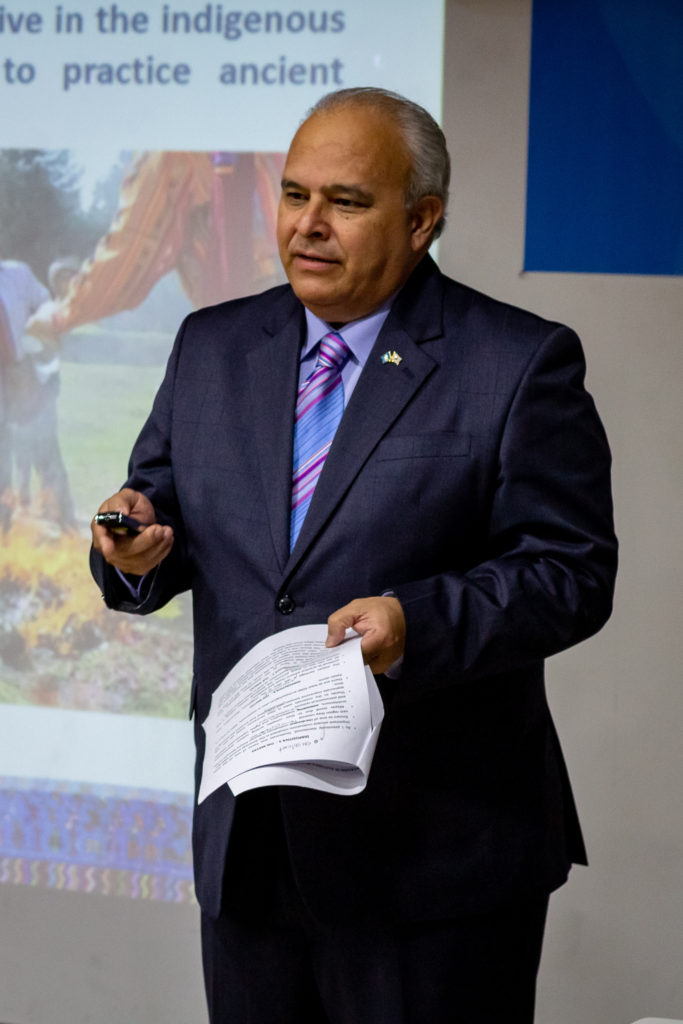
GN: Tell us about your early life growing up in Guatemala. Can you talk about what has changed in Guatemala since the end of the civil war and the establishment of the peace agreement in 1996?
Meneses Coronado: I thank God and my parents for being a child who was so happy. We were a middle class family growing up, but throughout my childhood, my parents taught me that since I still had the opportunity to study and to have food and toys, it was my duty to give and share with others around me. I learned that lesson from them and have since adopted those concepts for my life. I tried to do my best to study and to be a good soccer player; I was actually on the Guatemalan national team. I tried to show my parents that all the efforts they made for me were a worthwhile investment and that they did not waste their energy. When I also saw how my parents fought for democracy and peace in my country, as well as how hard they fought for the poor, I also adopted these ideals. It was for these reasons that I wanted to help my government by doing my best for my country.
GN: From what I understand, indigenous Maya make up about half of the population in Guatemala, but rights campaigners say that these groups still need to battle for equality. Can you explain to our readers, who might not have a solid grasp on Guatemalan affairs, about ways in which Guatemala champions the rights of its indigenous communities?
Meneses Coronado: Our country is one of the hardest to govern just because we have so many different cultures, interests, and visions on how to achieve development within one tiny nation. As you alluded to earlier, we had 36 years of internal conflict, civil war. Nobody wants war or conflict, but the problem is that we have social and economic problems that we of course are trying to resolve but simply cannot resolve in a short time. Many countries during their history have tried to resolve these types of problems, but sometimes they take over 200 years to rectify. We in Guatemala have a very complex history because 48 percent of our citizens are descendants of the Maya civilizations, and they coexist with the Ladinos, exercising power within our administrations. But the presidents are trying to keep control of this situation. For example, the political constitution and peace agreement that the government and guerilla fighters signed in 1996 recognized the different cultures of our country. I understand that our subsequent presidents have tried to do their best to uphold these standards, but nobody can do it alone. They need broad support from society, including the economic, social, and political sectors, among others. That is the biggest challenge, trying to put this type of change into dialogue and to create a way for all the sectors to get on the same page
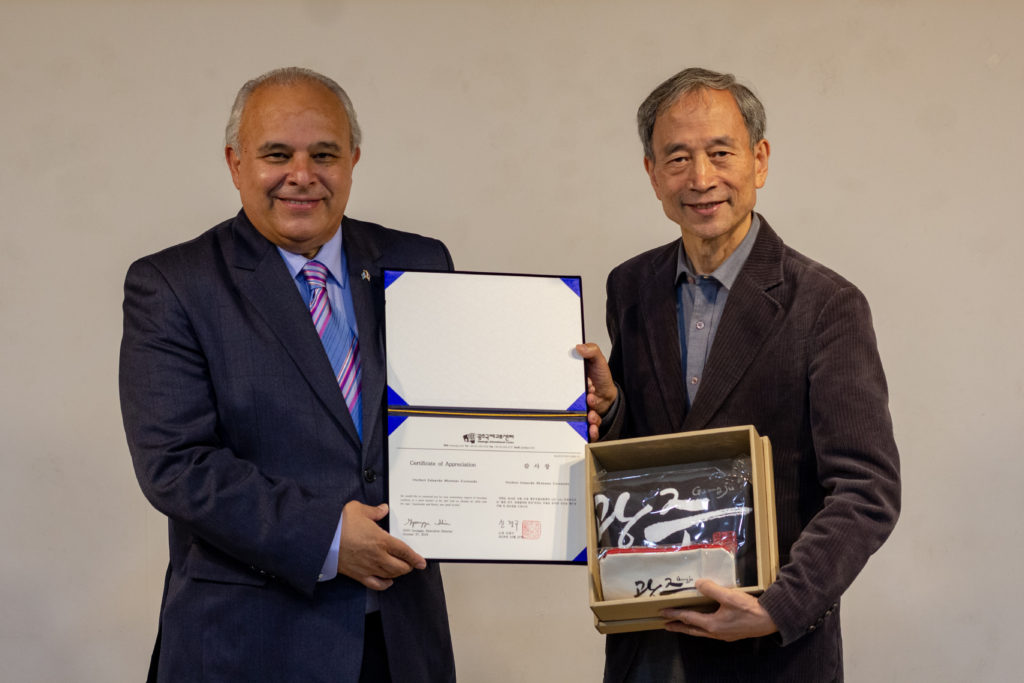
GN: I understand there is a quickly growing Korean diaspora developing in Guatemala. Are these individuals in the country pursuing business opportunities? What does the government do to attract and make life easier for Koreans, as well as for other nations’ diasporas in Guatemala?
Meneses Coronado: Indeed, there is a growing Korean diaspora in Guatemala. At present, we can count up to 8,000 Koreans living within our nation. Most of them work in the textile industry, one of the most important economic sectors within our country as far as exports are concerned. The Guatemalan government assigns great importance to the contributions of Korean investment in the country, which is why our government goes to great lengths to make life easier for the Korean diaspora during their time in Guatemala. One such effort was to designate one of the main roads in Guatemala City as “Seoul Boulevard” in honor of the country’s Korean residents.
GN: Can you speak briefly about what accomplishment in your career you are most proud of and why?
Meneses Coronado: It would be serving my country with honesty and dignity, and I want to dedicate that to my daughters. They are my reason for living. I will hopefully finish my career serving my country, and at the same time I wish to show my daughters that they can do anything they want if they do the right thing and respect other people along the way. This is the best inheritance that I hope to give – education and a good example.
GN: Thank you, Ambassador Coronado, for your time and for this interview. The Gwangju News is most grateful.
The Author
Wilson Melbostad is an international human rights attorney hailing from San Francisco, California. Wilson has returned to Gwangju to undertake his newest project: the Organization for Migrant Legal Aid (OMLA), which operates out of the Gwangju International Center. He has also taken on the position of managing editor of the Gwangju News.

